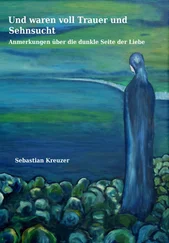We make it back to the base an hour later, sprinting the last stretch where Kim got pinned down weeks earlier and staggering in the south gate drenched like we’d all just jumped in a pond. The shooting has died down but starts up again half an hour later and then gets firmly settled by a pair of Apaches that come buzzing into the Korengal like angry insects. The men sit around shirtless, smoking cigarettes and watching the Apaches do their work against the flanks of 1705. “You thought that shit was funny this morning, huh?” someone yells after a long groan of 30 mike-mike into the mountainside. “Shoot at us again, bitch.”
Prophet has been picking up a lot of chatter about moving weapons and ammo around the valley and the enemy keeps talking about “the thing” and “the big machine.” The men assume it’s a Dishka. Kearney has a plan to air-assault Third Platoon onto the Sawtalo Sar ridge to try to find it, and Second Platoon’s job will be to man Phoenix and some of Third’s other positions while they’re on the mountain. That’s planned for the end of April, which leaves Restrepo a couple of weeks to conduct their own patrols before they get sucked into the larger mechanics of a company-level operation. The villagers in Loy Kalay have been complaining about Taliban fighters that move into their village after dark and harass them, and Patterson comes up with a plan to set up an ambush outside Karingal and surprise them on their way back. It will mean walking down-valley at night, hiding outside the village, and not moving a muscle until it gets dark again. The site for the ambush will be a low rock wall across a small valley outside Karingal. The stakes are high: if we’re spotted there, fighters in town can keep us pinned down behind the wall while their brothers in Darbart come down on us through the holly forests of 1705.
The mission is scheduled to go out shortly before midnight, and after dinner I start assembling my gear: a CamelBak full of water, one MRE, a rain poncho, a fleece jacket, and a handful of coffee crystals to pour into my drinking water to get me through the wake-up. Anderson wanders over and watches me for a while without saying anything and finally asks if I want to borrow an old uniform he has. I ask him why.
“It would be a lot better if we didn’t get spotted,” he says.
When soldiers use understatement it’s generally worth paying attention, but I turn him down because wearing military clothing seems like such a blatant erosion of journalistic independence. I doubt I’m more visible than the soldiers anyway — I’m dressed in muted colors that long ago turned Korengal-gray — but as I continue packing I realize that that’s not really the point. If we get compromised I’ll be the only guy in civilian clothes, and suppose someone gets hit? Suppose someone gets killed? Like every other reporter out there I’m eating Army food, flying on Army helicopters, sleeping in Army hooches, and if I were in the Korengal on my own, I’d probably be dead in twenty-four hours. Whatever boundaries may have blurred between me and the Army, the blurring didn’t start with a shirt.
I finish packing and find Anderson in his bunk and tell him I’ll take the clothes after all. He tosses them to me without a glance.
I’M ON MY BACK BEHIND A LOW ROCK WALL WITH A man ten feet to the left of me and another ten feet to the right. It’s so dark in the shadows I have no idea who they are. Holly oaks are bent over us like malevolent old people and moonlight turns the hillsides to pewter. It’s very cold and I wrap myself in an Army poncho and try to think myself off the mountain to someplace nice. I delay putting on my jacket because the cold is more bearable knowing that I’ve still got something in reserve. After a few hours a thin gray light finally infiltrates the world and begins reassembling the rocks and the trees around me. We’re on a steep hill facing Karingal with every man propped against his ruck and more men above and behind and below. The Claymores are out and no one speaks. Everyone is watching the valley emerge from the safety of night toward whatever’s going to happen next.
Karingal is a few hundred yards away. There is a stream at the base of our hill and then a series of wheat terraces and finally the first houses of town. People stir as soon as it’s light enough to see: voices, the cries of children, an ax smacking into wood. Teenage boys chase their family’s goats up the steep dry slopes west of town to graze the higher elevations. Two girls, little dabs of color against the green terraces, make their way to the stream below us and crouch to wash themselves. They can’t be fifty yards away. One old woman walks into the fields to relieve herself and others shuffle along a trail with bundles of firewood on their heads. No one has any idea we’re here. Finally there’s a man in olive drab moving fast along the high road toward Loy Kalay. He looks around continually and is soon joined by two other men on the same road. One has a shaved head. Next to me, Pemble studies them through binoculars and writes things down in a notebook. If he sees a gun or a radio they’ll be killed.
“We’ve seen about ten pax — fighting-age males — moving from Karingal to Loy Kalay and back,” Pemble tells me in a whisper. I can barely hear him over the rushing of the stream below us. “Two of them were wearing BDU jackets and they seem to be pulling security — one guy will come out, scan around, there’s another guy just chillin’ on a rooftop.”
BDUs are what the Army calls foliage-based camouflage. O’Byrne is whispering into his radio that wearing them is a killable offense, just like carrying a radio or a gun, but Patterson isn’t sure. (Patterson is the platoon sergeant, but he’s leading the patrol because Gillespie is away on leave.) After a few minutes the fighters disappear from sight and I watch the expression on O’Byrne’s face go foul. He’s lost his chance to kill those guys and — I know exactly what he’s thinking — they might be the very guys who kill an American next week or next month. There are other considerations, though. The enemy has observation posts as well, and they know exactly where the Americans go in the valley. This is one of the first times that a patrol has set up in their backyard and not been spotted. Enemy fighters are walking back and forth on an otherwise hidden road without any idea that infidels are watching them from two hundred yards away. Patterson could kill two guys now, or he could come back with a better plan and kill ten later.
By midmorning young boys start to play along the banks of the stream, and when I close my eyes, all I can hear are their shouts and the steady wash of the rapids. The only way to know I’m at war is to open my eyes and look around at all the men with their guns. The sun finally reaches our hillside and spreads over us like warm oil and I close my eyes again and listen to the children, and a while later I wake up to silence and cumulus clouds sliding across a pale blue sky. Hoyt has a pinch of dip in his mouth and dribbles methodically into the dirt beside him. Pemble stares placidly at the mountainside. Patterson studies the village through binos and checks what he sees against the entries in Pemble’s notebook.
Once in a while a man in the village looks in our direction and then looks away. It’s inconceivable that he could see us — dirty, unmoving faces in a chaos of rocks and foliage — but still, I have to fight the urge to duck behind the rock wall. No motion at all: roll to the side to piss and if you need to stretch, do it one limb at a time and very slowly. Cumulus clouds drag their shadows across the flat geometry of the terraces and then up into the hills and OP Dallas test-fires their .50 and the sun seems to stall around the noon point and then start its slide toward the western ridges. The valley colors deepen and by midafternoon Karingal contracts back in on itself: goatherds coming down off the hillsides and old men making their way across the terraces and women and children collecting on the rooftops. We leave our wall at the last blue tones of dusk and creep north off the hill and toward safety. We’re undetected except for the valley dogs that almost choke with outrage as we pass them in the dark.
Читать дальше
Конец ознакомительного отрывка
Купить книгу












